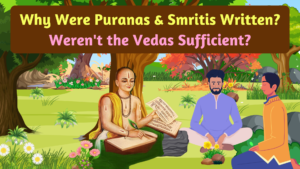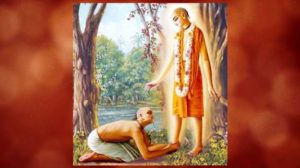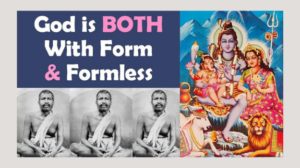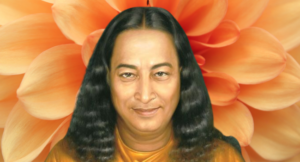The Himalayas have always been considered in India as mountains ensouled in divinity, where Rishis are constantly immersed in meditation. This fact was brought out in an even more profound way by Swami Vivekananda, when he explained to a 14 year old boy, the opening verse of the poem Kumarasambhavam, written by the great poet Kalidasa who lived in the 5th century AD.
In this poem’s first verse, Kalidasa speaks of the Divine nature of the Himalayas. However, when one reads a literal translation of Kalidasa’s verse from Sanskrit to English, it appears a little dry and fails to do the poet’s emotions adequate justice. But, when we read Swami Vivekananda’s in-depth explanation of the verse, which goes much beyond the literal translation, the true spirit in which Kalidasa wrote the stanza, along with the Divine significance of the Himalayas as protectors of India’s Vedantic knowledge, shines forth.
This precious explanation of Swamiji’s has been preserved for us by K.S. Ramaswami Sastri, in the book Reminiscences of Swami Vivekananda. It has been reproduced from there below:
K.S. Ramaswami Sastri: It was given to me to meet Swami Vivekananda at Trivandrum towards the close of 1892 before he went to Chicago to represent Hinduism at the Parliament of Religions…I was only fourteen years old at that time…when Swamiji stayed in our house for nine days.
One morning as I was reading Kalidasa’s Kumarasambhavam, which was one of my textbooks in Sanskrit. Swamiji came in. He asked, “What is that book you are studying?” I replied, “It is Kumarasambhavam, Canto I.”
He asked, “Can you repeat the great poet’s description of the Himalayas?” I repeated, in the usual musical mode current in South India, the beautiful and sonorous verses which constitute Kalidasa’s description of the Himalayas. Swamiji smiled and looked pleased. He said. “Do you know that I am coming after a long stay amidst the sublimity of the Himalayan scenes and sights?” I felt elated and interested.
He asked me to repeat again the opening stanza. I did so. He asked, “Do you know its meaning? Tell me.” I did so.
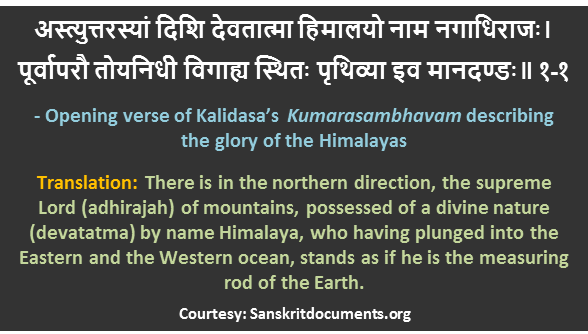
Swamiji said, “That is good, but not enough.” He then repeated the stanza in his marvellous, musical, measured tones and said:
“The important words in this verse are devatatma (ensouled by Divinity) and manadanda (measuring-rod). The poet implies and suggests that the Himalaya is not a mere wall accidentally constructed by nature.
It is ensouled by Divinity and is the protector of India and her civilization not only from the chill icy blasts blowing from the arctic region but also from the deadly and destructive incursions of invaders. The Himalaya further protects India by sending the great rivers Sindhu, Ganga, and Brahmaputra perennially fed by melted ice irrespective of the monsoon rains.
Manadanda implies that the poet affirms that the Indian (Vedantic) civilization is the best of all human civilizations and forms the standard by which all the other human civilizations, past, present, and future, must be tested. Such was the poet’s lofty conception of patriotism.”
I felt thrilled by Swamiji’s words. I treasure them even to this day, and they shine in my heart even now with an undimmed and undiminished splendour.
On another of the nine days, he said to me and my father, “Practical patriotism means not a mere sentiment or even emotion of love of the motherland but a passion to serve our fellow-countrymen. I have gone all over India on foot and have seen with my own eyes the ignorance, misery, and squalor of our people. My whole soul is afire and I am burning with a fierce desire to change such evil conditions.
Let no one talk of karma. If it was their karma to suffer; it is our karma to relieve the suffering. If you want to find God, serve Man. To reach Narayana (God) you must serve the daridranarayanas (God in the poor) — the starving millions of India.”
That was the root from which came the great tree of the Ramakrishna Mission later on. His words melted our hearts and kindled in our souls the flame of social service. Thus service was as dear to him as spirituality. In his later life, in a memorable letter (to Mary Hale, July 9th 1897.) he exclaimed, “May I be born again and again and suffer thousands of miseries so that I may worship the only God that exists, the only God I believe in, the sum total of all souls: and, above all, my God the wicked, my God the miserable, my God the poor of all races, of all species, is the special object of my worship.”

